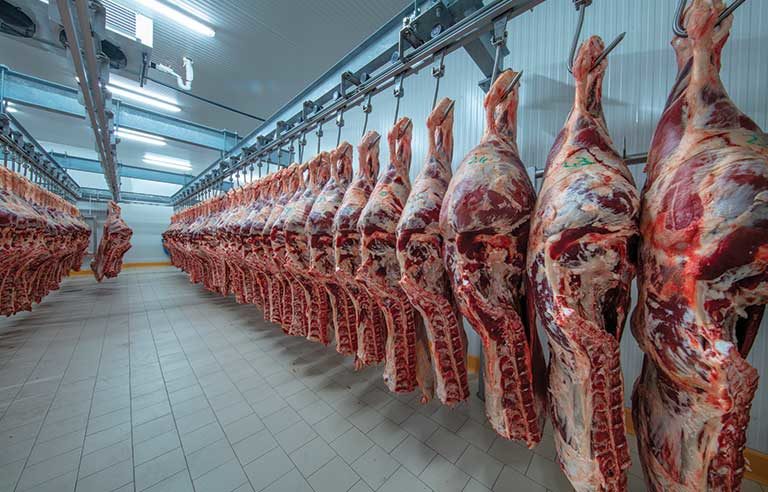Community spread of COVID-19 occurred faster in counties with meatpacking facilities: study

Davis, CA — U.S. counties that are home to beef-, pork- and poultry-processing plants experienced accelerated COVID-19 infection rates during the pandemic, according to a recent study led by a researcher at the University at California, Davis.
By assessing infection rates within 150 days of the first COVID-19 case in a county, researchers found that “the presence of a large beef-packing facility increases per capita infection rates by 110%, relative to comparable counties without meatpacking plants. Large pork- and chicken-processing facilities increase transmission by 160% and 20%, respectively.”
The researchers controlled for numerous factors that can drive up transmission rates, including the number of nursing homes or correctional facilities in counties, as well as stay-at-home orders, demographics and health characteristics.
Infection rates in counties with meatpacking plants did ultimately stabilize over time as employers established infection control measures such as physical distancing requirements, physical barriers between workers, enhanced use of personal protective equipment and updated ventilation systems.
“While we did see an initial ramp up in cases attributable to meatpacking facilities, over time, infection rates were the same per capita as counties without them, partly because meatpacking plants implemented a lot of protocols to protect employees,” Tina Saitone, lead study author and UC Davis livestock and rangeland economics cooperative specialist, said in a press release.
The study was published online April 8 in the journal Food Policy.
Post a comment to this article
Safety+Health welcomes comments that promote respectful dialogue. Please stay on topic. Comments that contain personal attacks, profanity or abusive language – or those aggressively promoting products or services – will be removed. We reserve the right to determine which comments violate our comment policy. (Anonymous comments are welcome; merely skip the “name” field in the comment box. An email address is required but will not be included with your comment.)

